Best Essential Oil for Earache: Effective Solutions and How to Use Them
Suffering from an earache? Imagine finding relief without relying on over-the-counter medications. Essential oils might provide the natural remedy you need, especially when considering essential oil for earache. Dive into our comprehensive guide to discover the best essential oils for earaches and how to use them safely.
Must-Know Essentials for Earache Relief
Understanding Earaches and How Essential Oils Can Help
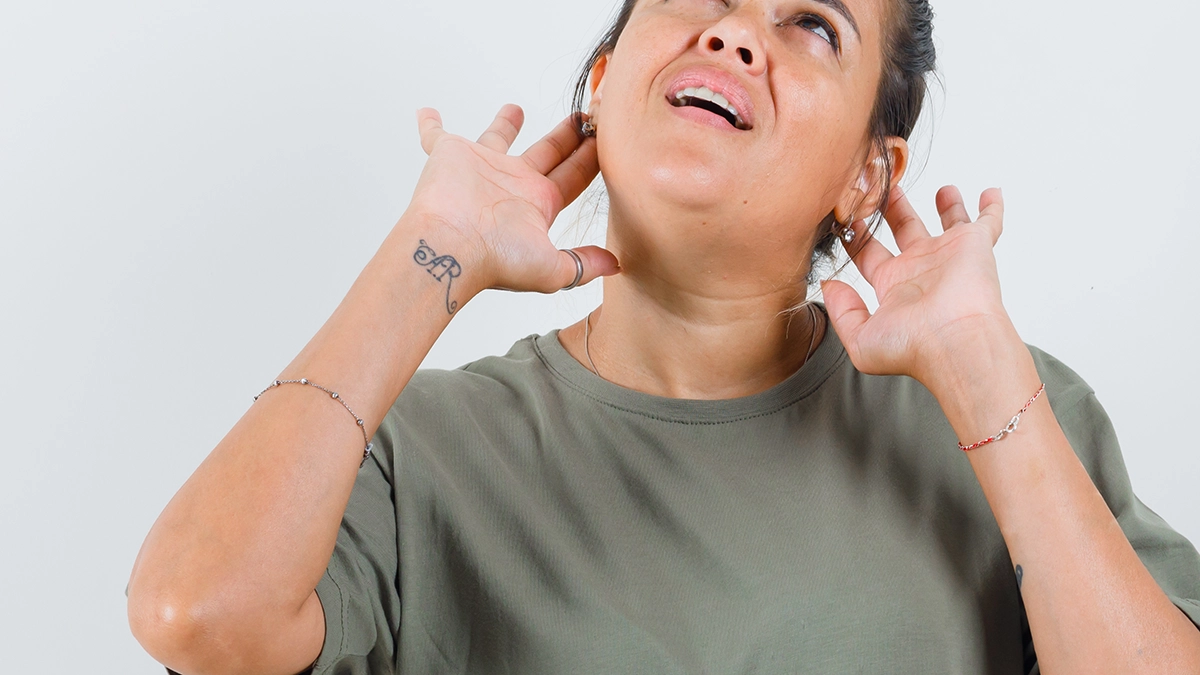
Ear infections, often referred to as acute otitis media, are a common cause of earaches. These infections can result from bacteria or viruses entering the ear canal, leading to inflammation and pain. Essential oils, with their powerful antimicrobial and antibacterial properties, can help combat these infections and provide relief from ear pain.
Certain essential oils, such as lavender oil and basil oil, have specific properties that make them particularly effective for treating earaches. Lavender oil provides relaxing and sedative effects, which can soothe the aching ear, while basil oil’s anti-inflammatory and antiseptic attributes help reduce pain and discomfort. Steam inhalation, another method involving essential oils, can also relieve ear pain by reducing congestion and pressure.
Effectively using essential oils involves understanding their natural properties. These oils can treat ear infections and alleviate pain safely. The next sections will discuss the best essential oils for earaches and how to use them.
Top Essential Oils for Treating Earaches
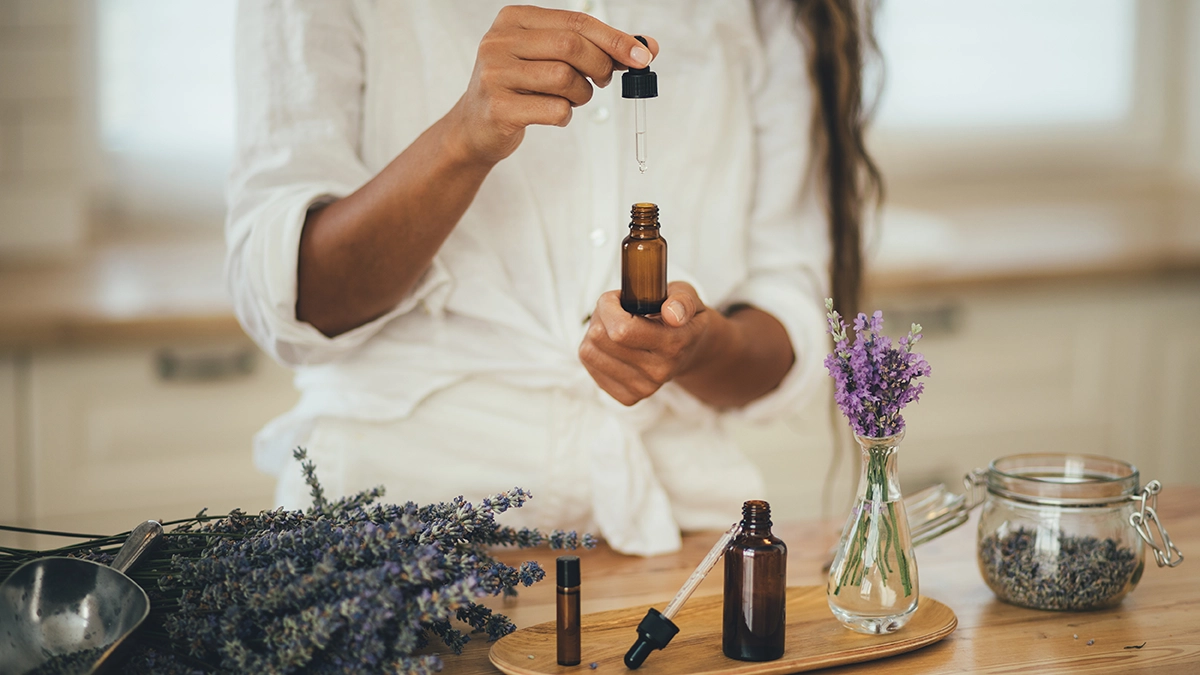
Certain essential oils are particularly effective in treating ear infections. They include essential oils to treat:
- Tea tree oil
- Lavender oil
- Basil oil
- Oregano oil
These oils are known for their antimicrobial, antibacterial, and anti-inflammatory properties, making them ideal for alleviating ear infection symptoms.
Each essential oil has unique benefits. Tea tree oil’s potent antimicrobial properties make it effective against ear infections. Lavender oil provides calming and pain relief. Basil oil reduces ear pain and swelling with its anti-inflammatory properties, while oregano oil combats viruses causing ear infections.
Let’s explore each of these oils in detail.
Tea Tree Oil
Tea tree oil is a popular choice for treating ear infections due to its strong antibacterial and anti-inflammatory properties. The chemical compound terpinen-4-ol in tea tree oil is particularly effective against certain bacteria, making it a powerful remedy for earaches. A common method for using tea tree oil involves heating a few drops with olive oil and colloidal silver before applying it.
Properly dilute tea tree oil to prevent skin irritation. Mixing it with a carrier oil like olive oil not only dilutes it but also adds antibacterial benefits. Apply this mixture around the outer ear for relief from pain and infection.
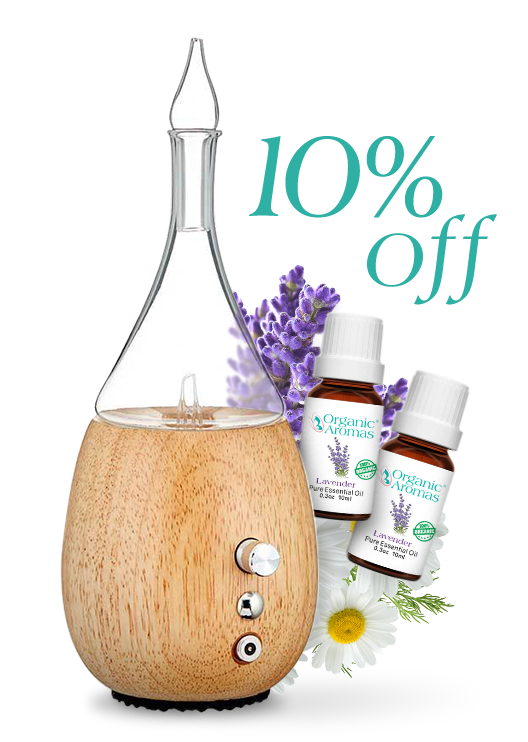
Join Now and Get a Coupon for 10% Off!
Lavender Oil
Lavender oil is celebrated for its anti-inflammatory and analgesic properties, which make it highly effective in alleviating earache symptoms. Not only does it help reduce pain, but it also promotes relaxation, which can be particularly beneficial during a painful ear infection.
Mix a few drops of lavender oil with a carrier oil like coconut oil to create a soothing mixture. Apply this diluted oil gently around the outer ear to reduce inflammation and relieve pain.
Basil Oil
Basil oil is known for its anti-inflammatory effects, which can significantly reduce ear pain and discomfort. This essential oil can be used effectively by applying a few drops on a cotton ball and placing it on the ear. This method allows the oil’s beneficial compounds to be absorbed, providing targeted relief.
Dilute basil oil with a carrier oil to prevent skin irritation. Its anti-inflammatory properties make it a valuable addition to your natural remedy toolkit for earaches.
Oregano Oil
Oregano oil is renowned for its antiviral properties, which can help treat ear infections and reduce the severity and duration of earaches. Its effectiveness against viruses makes it a potent natural remedy for ear infections.
Oregano oil should be diluted with a carrier oil like olive oil or coconut oil. Apply this diluted mixture around the outer ear to combat infection and alleviate pain.
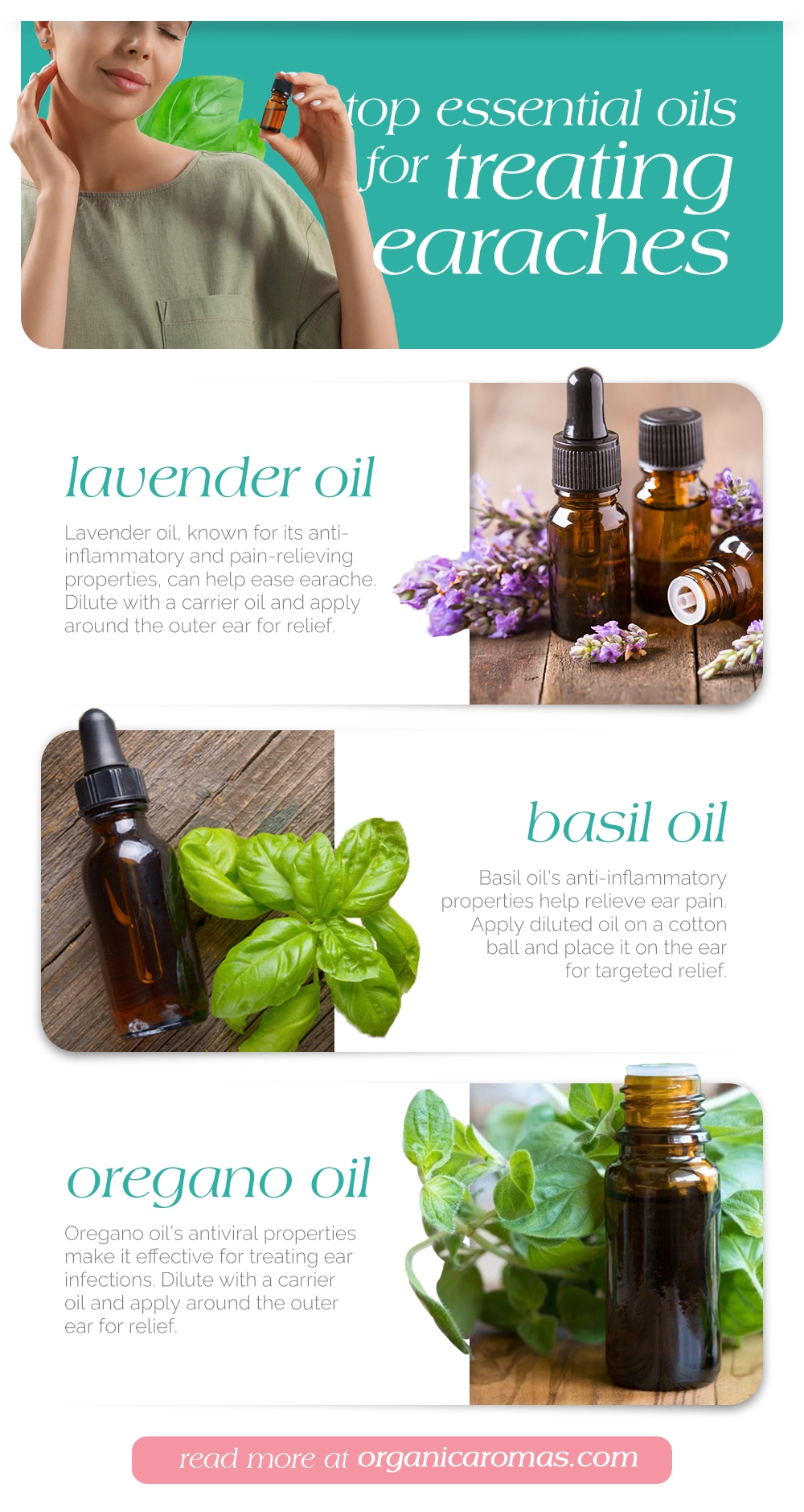
How to Safely Use Essential Oils for Earaches
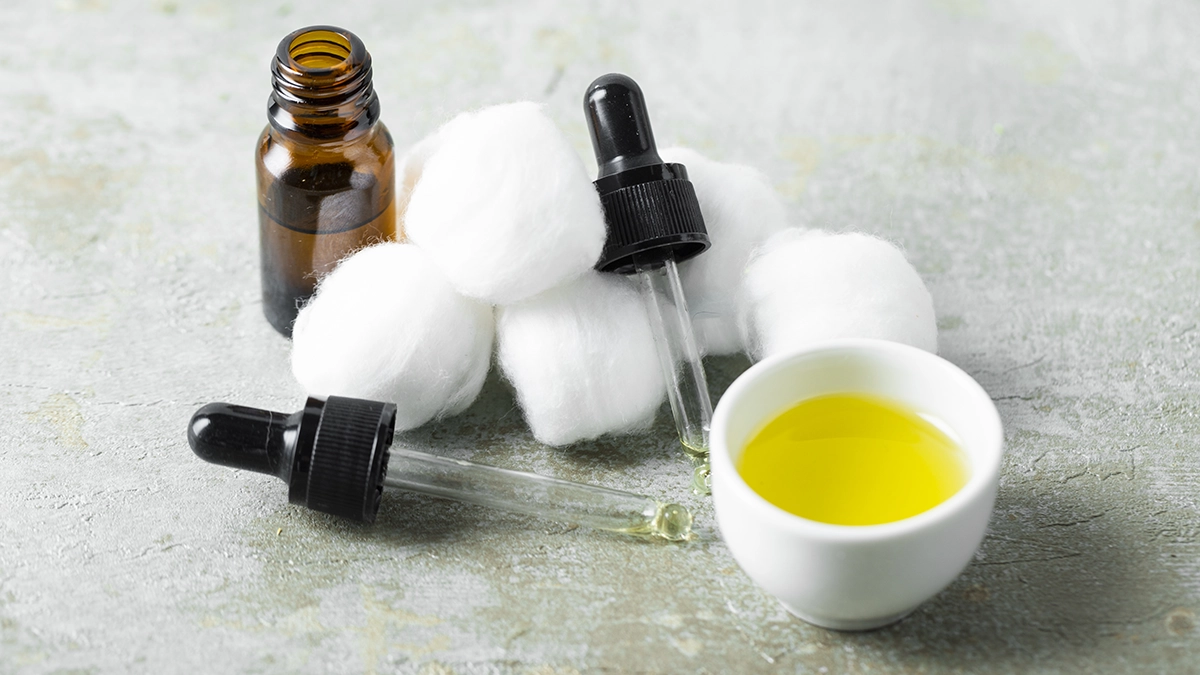
Essential oils can be effective for treating earaches, but safe use is crucial. Always dilute them before application to prevent irritation. Consult a healthcare provider before using essential oils for ear issues to ensure safe and appropriate use.
Some essential oils, like olive oil, offer additional antibacterial relief. Proper dilution and application methods are key to safely and effectively using essential oils for earaches.
Diluting Essential Oils with Carrier Oils
Diluting essential oils prevents skin irritation and other adverse reactions. Undiluted oils can be too potent and harmful if applied directly to the skin. A carrier oil, like coconut oil, helps dilute the essential oil for safer use.
Mix 1-2 drops of essential oil with a teaspoon of carrier oil for safe application around the outer ear, providing relief from pain and infection.
Application Methods
Several methods exist for applying essential oils for ear pain relief. Soak a cotton ball in the diluted oil mixture and place it on the outer ear, or use a dropper to apply the mixture around the ear, avoiding direct contact with the ear canal.
Avoid inserting essential oils directly into the ear canal, especially if there is earwax present, as this can cause complications. Always use properly diluted oils and apply them safely.
Patch Test and Precautions
A patch test can prevent irritation and allergic reactions. Apply a small drop of diluted oil to the skin and wait for an hour to check for any reaction. This step ensures the oil is safe for use on sensitive areas like the ear.
Avoid using undiluted essential oils in the ear, as this can cause stinging, redness, and inflammation. Also, individuals with a ruptured eardrum, pregnant or breastfeeding women, babies, and children should not use essential oils.
Keep essential oils away from children and pets to prevent accidental ingestion or exposure.
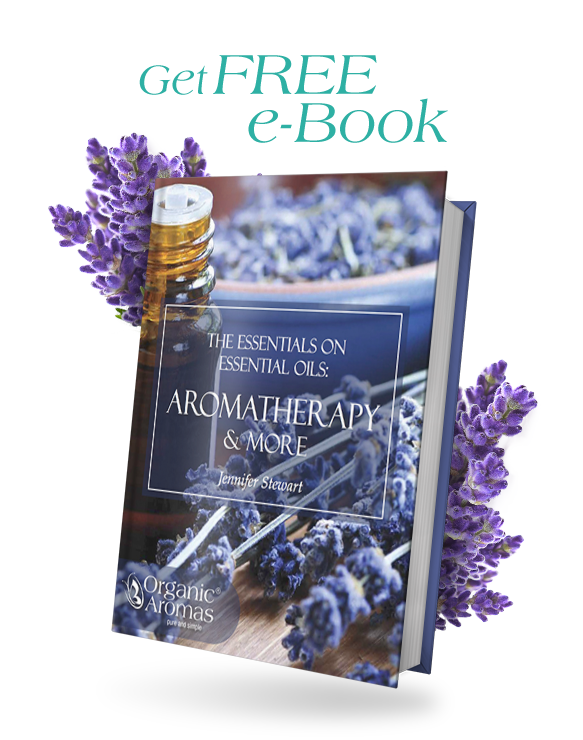
Sign Up to Get Your FREE
e-Book Here…
Additional Natural Remedies for Earaches
Essential oils are not the only option for easing ear pain. Other natural remedies can also be effective and complement the use of essential oils. Effective methods include using a warm compress, steam inhalation, and performing neck exercises.
These natural remedies, when combined with the use of essential oils, can offer a comprehensive approach to treating earaches and promoting overall ear health.
Warm Compress
A warm compress on the affected ear can relax surrounding muscles and relieve pain. Alternating between warm and cold compresses can further reduce inflammation and improve blood flow.
Steam Inhalation
Steam inhalation effectively relieves ear pain. Boil water, pour it into a bowl, lean over with a towel draped over your head to trap the steam, and inhale for 10-15 minutes. Adding eucalyptus or peppermint oil can enhance the benefits.
The warmth and moisture from steam inhalation loosen mucus, reduce congestion, and alleviate pressure in the middle ear, significantly improving overall comfort and relieving ear pain.
Neck Exercises
Neck exercises release tension that contributes to ear pain. Simple exercises like lifting the shoulders towards the ears and then relaxing them can relieve tension and improve blood flow, reducing ear pain.
Incorporating these exercises into your routine helps alleviate ear discomfort.

Join Our Exclusive Member Club to get Big Discounts!
When to Seek Medical Attention
Natural remedies and essential oils can be effective, but sometimes medical attention is necessary. Consult a healthcare provider if an earache persists for more than three days. Seek help if the earache is accompanied by a high fever, severe sore throat, or discharge from the ear.
Children under two years old experiencing ear pain in both ears should see a doctor immediately. Seek professional care if over-the-counter pain relievers do not improve the situation to prevent complications.
Summary
Essential oils offer a natural and effective way to treat earaches and alleviate pain. By understanding the properties and benefits of different essential oils, such as tea tree oil, lavender oil, basil oil, and oregano oil, you can choose the best options for your needs. Proper dilution and safe application methods are crucial to ensuring their effectiveness.
Incorporating additional natural remedies like warm compresses, steam inhalation, and neck exercises can enhance the relief from ear pain. However, it is important to recognize when to seek medical attention to prevent complications. Embrace these natural solutions responsibly and enjoy the benefits of a holistic approach to ear health.
Frequently Asked Questions
Can essential oils be used directly in the ear canal?
Essential oils should not be used directly in the ear canal. It is advisable to dilute them with a carrier oil and apply only to the outer ear to prevent irritation and potential complications.
How do I perform a patch test before using essential oils?
To perform a patch test, apply a small drop of the diluted essential oil on your skin and observe for any allergic reaction over the course of one hour. This precaution helps ensure the oil’s safety for sensitive areas.
What are the best essential oils for treating earaches?
Tea tree oil, lavender oil, basil oil, and oregano oil are effective essential oils for treating earaches due to their beneficial properties in alleviating pain and addressing infections. Consider these options for potential relief.
Can essential oils be used for children’s earaches?
Essential oils can be used for children’s earaches, but it is crucial to consult a healthcare provider beforehand, particularly for children under two years old. Prioritizing safety and professional guidance is essential.
When should I seek medical attention for an earache?
You should seek medical attention for an earache if it persists for more than three days, is accompanied by a high fever or severe sore throat, or if there is discharge from the ear. Additionally, children under two years old with ear pain in both ears require immediate medical evaluation.








Very interesting